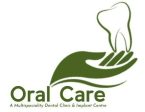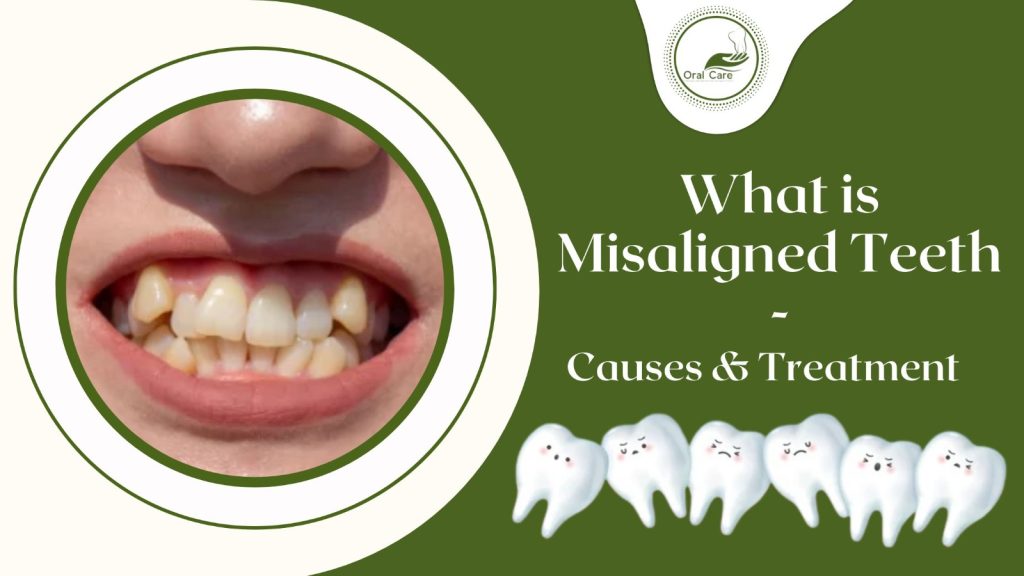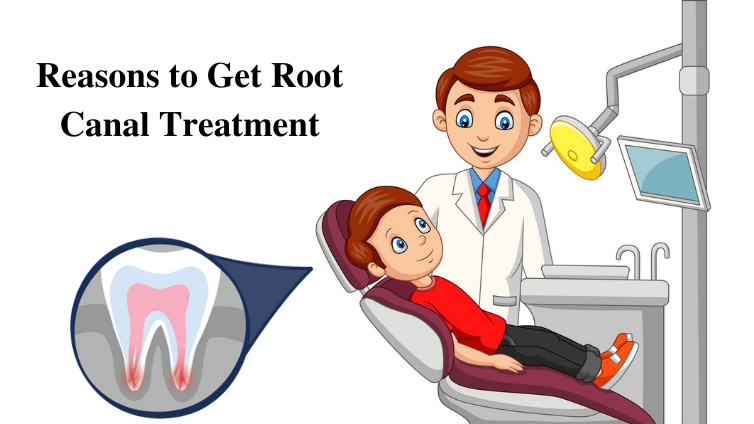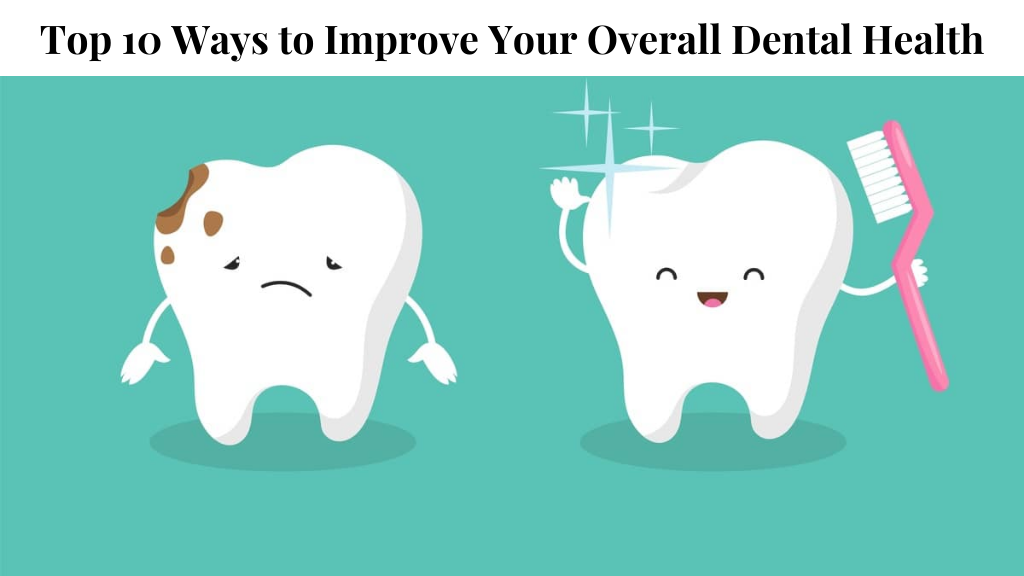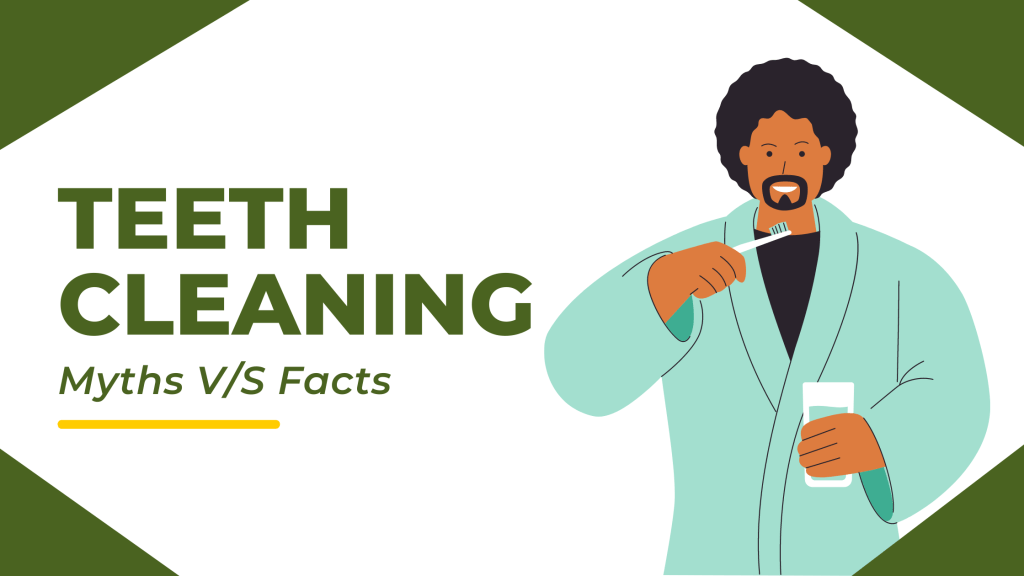What is Misaligned Teeth – Causes and Treatment
Everybody has a somewhat distinct set of teeth. But the discrepancy is more pronounced in those with misaligned jaws or teeth. Sometimes the condition affects just one tooth, while other times it affects many teeth or the alignment of the jawbones. Severe misalignments might impair your psychological health and cause issues with breathing, speaking, and chewing. They may also raise the chance of cavities and gum disease. According to the Best Dentist in Vaishali Ghaziabad, Dr. Gaurav Sharma “Malocclusion” is the medical term for improperly positioned teeth. Braces, either fixed or removable, are frequently used to address misaligned teeth and jaws. Teens are the primary target audience for dental braces since their mouths are still developing and may be easily repositioned to accommodate straighter teeth and angular jawlines. Causes Of Misaligned Teeth Teeth misalignment affects people of all ages and can happen at different phases of growth. There are several causes of dental misalignment in humans. 1. Molecular Biology Malocclusions might be a result of disorders inherited from your family. For instance, you can be born with crowded or misaligned teeth due to a limited mouth or jaw size. Inheriting misaligned teeth due to poor palate development is another possibility. 2. Premature Loss of Baby Teeth At a specific age, children lose their primary teeth to make room for their permanent adult teeth. However, oral trauma or cavities might lead them to lose their teeth early. The teeth next to the gap move and become tilted as a result. In addition, there won’t be enough room for the new teeth to grow in. The child’s teeth will be misaligned as a result. 3. Bad Myofunctional Habits Babies that engage in harmful repeated behaviors that impact their mouth muscles may experience misalignment difficulties. These include using pacifiers a lot or sucking one’s thumb. Thumb-sucking, for instance, results in an open bite. Mouth breathing and tongue pushing are two other harmful behaviours that lead to misaligned teeth. 4. Dental Trauma It is possible to have misplaced teeth following a facial or oral trauma. Most dental damage happens as a result of accidents or intense sports. For instance, a ball strike to a tooth may cause it to shift, resulting in crooked teeth next to it. 5. Poor Dental Care When you take poor care of your teeth, you raise your chance of misalignment. For instance, decay, cavities, and gingivitis can arise from neglecting dental cleanings and examinations. Your teeth may become loose and move as a result of gum disease, which can lead to misalignment. Malocclusion can also occur when gum disease or tooth decay leads teeth to fall out. 6. Malnutrition Healthy tooth and bone growth is facilitated by eating a balanced diet. Insufficient and inappropriate nutrition leads to poor dental development. Consequently, you could get crooked teeth. In addition to causing decay and gingivitis, poor diet also contributes to misaligned teeth. Best Misaligned Teeth Treatment Options Has the question, “Is it possible to fix an extreme case of overcrowding or teeth gap?” crossed your mind a lot? Well, don’t worry if this is confusing you. Teeth misalignment brought on by environmental or genetic factors can be corrected. Even though every situation is unique, any of the following misaligned teeth treatment techniques can quickly and effectively correct it. 1. Metal Braces The most traditional and traditional way of straightening teeth is using metal braces. This involves using an orthodontic wire to tighten the tiny steel brackets against the teeth, applying pressure on the teeth. If your teeth are badly out of alignment, metal braces are better. 2. Clear Aligners These invisible trays may be customized to meet the demands of various individuals. In contrast to metal braces, transparent aligners are almost invisible to onlookers. As a result, they fail to raise people’s awareness of their beauty. Furthermore, because there are no brackets or wires linked to the teeth with transparent aligners, the likelihood of wires and brackets coming loose cuts down on the number of appointments you will need to have with your orthodontist nearly in half. 3. Ceramic Braces To seem inconspicuous to others, these braces are constructed of ceramic or transparent brackets rather than metal. To force the brackets together, some orthodontists even utilize wire that matches the colour of teeth. 4. Dental Implants In situations when crooked or damaged teeth create misalignment, dental implants are recommended. As the name implies, your orthodontist would create new teeth in dental implants to correct your misaligned teeth. The process of getting dental implants is time-consuming and involves the extraction of titanium rods, which are subsequently used to attach the tooth. Prevention You may attempt to assist young toddlers break harmful behaviours like thumb sucking to avoid crooked teeth. Some kids will stop sucking their thumb, for example, if you draw a face on it or apply an unpleasant-tasting cream or polish. Consult with your child’s dentist about substituting their pacifier (dummy or soother) with an appropriate one to help them wean off of it. In Germany, statutory health insurers may cover this at times. From the outside, the unique pacifier seems to be just like a regular pacifier, but within the mouth, a plastic screen separates the lips and teeth. For the baby teeth to remain in the mouth long enough to “show” the permanent teeth where they should erupt, it’s also critical to take appropriate care of them.If you are Struggling with Dental Problems, and need help, Consult the Best Dental Surgeon in Ghaziabad, Dr. Gaurav Sharma.
What is Misaligned Teeth – Causes and Treatment Read More »
